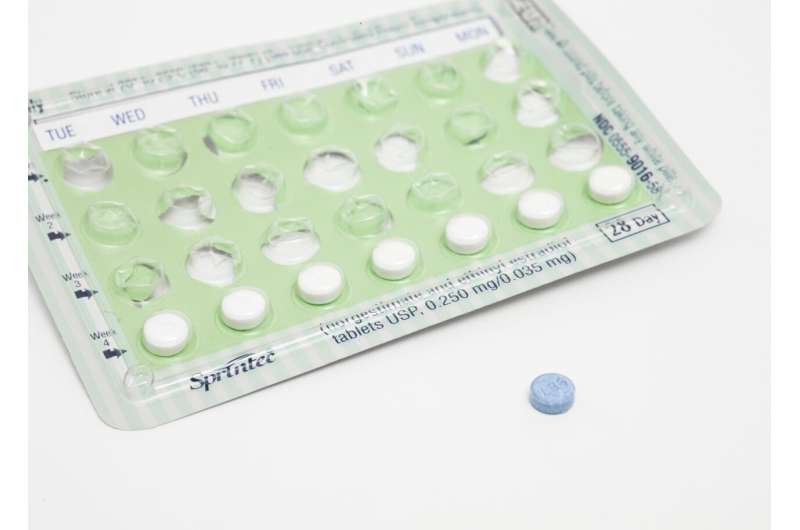
A new study from Uppsala University shows that oral contraceptives and hormone therapy at menopause increase the risk of stroke. The increased risk is greatest during the first year of treatment and then declines. The study, which is now published in Stroke, is based on data from over a quarter of a million women from the UK Biobank database.
“Women who began taking oral contraceptives had twice the risk of experiencing stroke, but only during the first year of use. If they continued taking oral contraceptives, the risk declined and after more than a year of use, we no longer saw any increased risk,” says Therese Johansson at the Department of Immunology, Genetics and Pathology at Uppsala University, and one of the lead researchers of the study.
Looking at the whole world, stroke is the second most common cause of disability and premature death, which is the equivalent of 11% of the total number of deaths each year. Stroke is caused by changed blood flow to the brain, either due to a blockage caused by a blood clot—cerebral infarction—or to a cerebral hemorrhage.
So-called exogenous hormones containing estrogen can be taken as oral contraceptives to protect against unwanted pregnancy, or as hormone therapy during menopause to compensate for the loss of estrogen that occurs at that time. Hormone therapy helps to reduce many symptoms of menopause, including hot flashes, vaginal dryness and mood swings.
Estrogen has been shown to have a protective effect on vascular health, but it is also associated with increased risk of blood clot.
In the relevant study, which is based on data from the British biomedical database UK Biobank, the researchers compared the incidence of stroke as well as the specific sub-types, cerebral infarction and cerebral hemorrhage, between women who took exogenous hormones and those who did not.
“At the age at which women usually begin taking oral contraceptives, very few experience a stroke. The difference in the lifetime risk between those who have taken oral contraceptives and those who have not is therefore small, even if there is increased short-term risk,” says Therese Johansson.
Hormone therapy has previously been connected to increased risk of stroke when taken several years after menopause. It has also been proposed that it protects against stroke if started before or just after menopause.
“We saw increased risk of both versions of stroke, cerebral infarction and cerebral hemorrhage, in the first year of hormone therapy, and the risk of cerebral infarction remained high after the first year. Unlike what previous research has shown, we saw increased risk of stroke among women who began hormone therapy already before menopause. But we could also see that women who had not had hormone therapy also had increased risk of stroke when menopause began, while those who were treated had no increased risk of stroke when they started menopause,” says Åsa Johansson, one of the study’s authors.
Source: Read Full Article